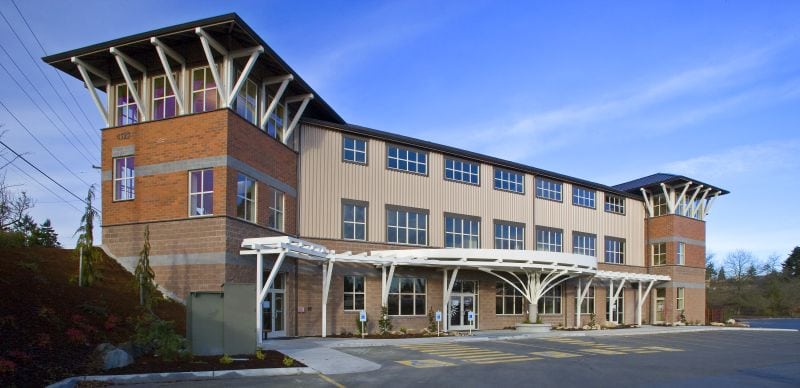Washington State Passes a New Law Focusing on Breast Density and Mammograms
Beginning in 2019, women in Washington will begin receiving additional information regarding breast density in their mammography result letters. Passed in 2018, a new Washington state law mandates that women be aware of their breast density after they receive a mammogram. Washington joins 34 other states mandating this notification.
So what is breast density and what does it mean for the average woman? Dr. Wei-Shin Wang of Carol Milgard Breast Center answers questions many women have about breast density, mammograms and how women with dense breasts should manage their breast cancer risk.
What is breast density?
A woman’s breast is composed primarily of two elements: fatty tissue and milk producing fibroglandular tissue. Breast density refers to the amount of fibroglandular tissue relative to fatty tissue in a woman’s breast. The balance between these two types of tissues can vary widely from one woman to the next. A woman is considered to have dense breasts if she has a lot of fibroglandular tissue and not much fatty tissue. Breast density tends to decrease with age and weight gain.

Why does breast density matter?
Women with dense breasts have an increased risk of breast cancer when compared to women with average or below average breast density. It is also more difficult to detect a small breast cancer on a mammogram in a woman with dense breasts.
How do I find out my breast density?
A woman’s breast density can be identified on a mammogram. With the passage of the new breast density law, whenever you obtain a mammogram, your result letter will tell you whether you have dense breasts or not. Approximately half of all women have dense breasts.
What should I do if I have dense breasts?
Talk to your doctor regarding your breast cancer risk and determine whether additional risk assessment or genetic testing is needed. Though having dense breasts increases your risk of developing breast cancer, other factors such as age and family history are greater risk factors. The vast majority of women with dense breasts never get breast cancer.
If I have dense breasts, should I still get a screening mammogram?
Yes. Whether you have dense breasts or not, mammograms remain the best screening test to identify breast cancer and the only screening test proven to decrease breast cancer deaths.
Are there other imaging tests I should consider if I have dense breasts?
Breast MRI and Breast Ultrasound are two additional imaging tests that can be performed. Neither of these tests can replace a mammogram, but can be performed if additional clarity is needed. Both tests have the potential to find cancers not seen on a mammogram, though both also have a tendency to pick up findings that are not cancer. This can lead to additional testing and biopsies. To determine whether you need these additional imaging tests, speak with your medical provider. Together, you and your provider can determine what testing is right for you.

What if I don’t have dense breasts? Do I still need a mammogram?
Women without dense breasts should still obtain screening mammograms. Though you may not have dense breast tissue, you are still at risk for developing breast cancer and mammograms are the only screening test proven to decrease breast cancer deaths.
Where can I get more information?
We recommend speaking with your medical provider if you have additional questions regarding breast density. You can also visit Wa-DenseBreastAnswers.org or Carol Milgard Breast Center’s website for more information
To schedule your annual screening mammogram, please call 253-759-2622.
